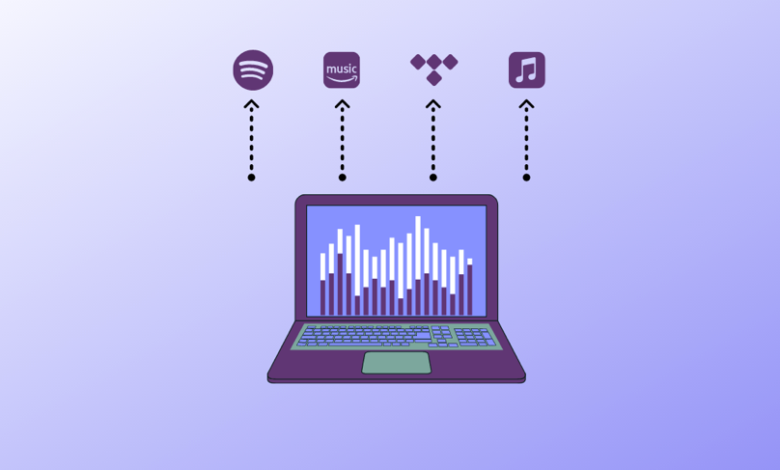The Business of Music: Marketing, Promotion, and Distribution

With the advancement of technology and the internet, the music industry has changed drastically in recent years, and new opportunities have emerged for artists to reach wider audiences. However, with more artists than ever before competing for listeners’ attention, marketing, promotion, and distribution have become essential components of any successful music business. Sometimes it’s a matter of luck, just like at 22bet.com.gh. In this article, we’ll explore the business of music and delve into the key strategies and techniques used by industry professionals to market, promote, and distribute music.
Marketing Music
Marketing music is the process of identifying and understanding the target audience for an artist’s music, and then developing strategies to reach and engage with that audience. There are various marketing channels that an artist can use to promote their music, including social media, online advertising, email marketing, and influencer partnerships. Here are some of the key strategies used by music marketers to promote an artist’s music:
- Identify the Target Audience: The first step in any successful marketing campaign is to identify the target audience. The target audience is the group of people who are most likely to enjoy an artist’s music. To do this, marketers conduct research to understand the demographic and psychographic characteristics of the audience, including age, gender, location, and musical preferences.
- Develop a Brand: Once the target audience has been identified, the next step is to develop a brand that will resonate with that audience. The brand should reflect the artist’s personality and style, and it should be consistent across all marketing channels.
- Create Compelling Content: Content is king in the music industry, and creating compelling content is essential to engage with fans and build a following. Content can include music videos, behind-the-scenes footage, interviews, and social media posts.
- Utilize Social Media: Social media is a powerful tool for music marketers, and it can be used to build a following, promote new releases, and engage with fans. Platforms like Instagram, Twitter, and Facebook are great for sharing content and interacting with fans.
- Collaborate with Influencers: Influencer marketing is a popular strategy used by music marketers to reach new audiences. Collaborating with social media influencers who have a large following can help an artist reach new fans and build their brand.
Promoting Music
Promoting music is the process of increasing awareness and interest in an artist’s music, with the goal of driving sales and streams. There are various promotion channels that an artist can use to promote their music, including radio, streaming services, live events, and music blogs. Here are some of the key strategies used by music promoters to promote an artist’s music:
- Radio Promotion: Radio promotion is a traditional marketing channel that is still used by many music promoters. Radio stations play an important role in breaking new artists and promoting new releases, and getting airplay on a popular radio station can significantly increase an artist’s exposure.
- Streaming Promotion: Streaming services like Spotify, Apple Music, and Tidal have become the primary way that people consume music, and getting playlisted on these platforms can help an artist reach new audiences. Music promoters work with streaming services to secure placements on popular playlists and increase an artist’s visibility.
- Live Events: Live events are an important part of the music industry, and they provide artists with the opportunity to connect with fans and promote their music. Concerts, festivals, and tours can all be used to promote an artist’s music, and they can generate significant revenue for the artist.
- Music Blogs: Music blogs are a popular way for music promoters to promote new releases and emerging artists. Music bloggers have a dedicated following of music enthusiasts, and getting featured on a popular blog can significantly increase an artist’s exposure.
- Publicity: Publicity is another important aspect of promoting music. Music publicists work to secure media coverage for an artist’s music, including interviews, reviews, and features in newspapers, magazines, and online publications. Publicity can help an artist reach new audiences and build credibility in the music industry.
Distribution of Music
Distribution is the process of making an artist’s music available for purchase or streaming through various channels. The traditional music industry distribution model involved record labels signing artists, manufacturing physical copies of their music, and distributing those copies to retail stores. However, the rise of digital music distribution has disrupted this model and made it easier for independent artists to distribute their music. Here are some of the key distribution channels used by music distributors:
- Digital Distribution: Digital distribution is the primary method of music distribution today. Digital music distributors work with streaming services and online retailers to make an artist’s music available for purchase or streaming. Popular digital music distributors include TuneCore, DistroKid, and CD Baby.
- Physical Distribution: Although digital music distribution has largely replaced physical distribution, some artists still release physical copies of their music, such as vinyl records, CDs, and cassette tapes. Physical distribution can be more expensive than digital distribution, but it can provide an additional revenue stream for artists.
- Licensing: Licensing is another way that artists can distribute their music. Licensing involves allowing a third-party to use an artist’s music in a film, television show, commercial, or video game, in exchange for a licensing fee. Licensing can provide exposure and additional revenue for an artist.
- Direct-to-Fan Distribution: Direct-to-fan distribution is a strategy used by some artists to sell their music directly to fans, bypassing traditional distribution channels. This can include selling digital downloads or physical copies of their music on their website or at live events.




